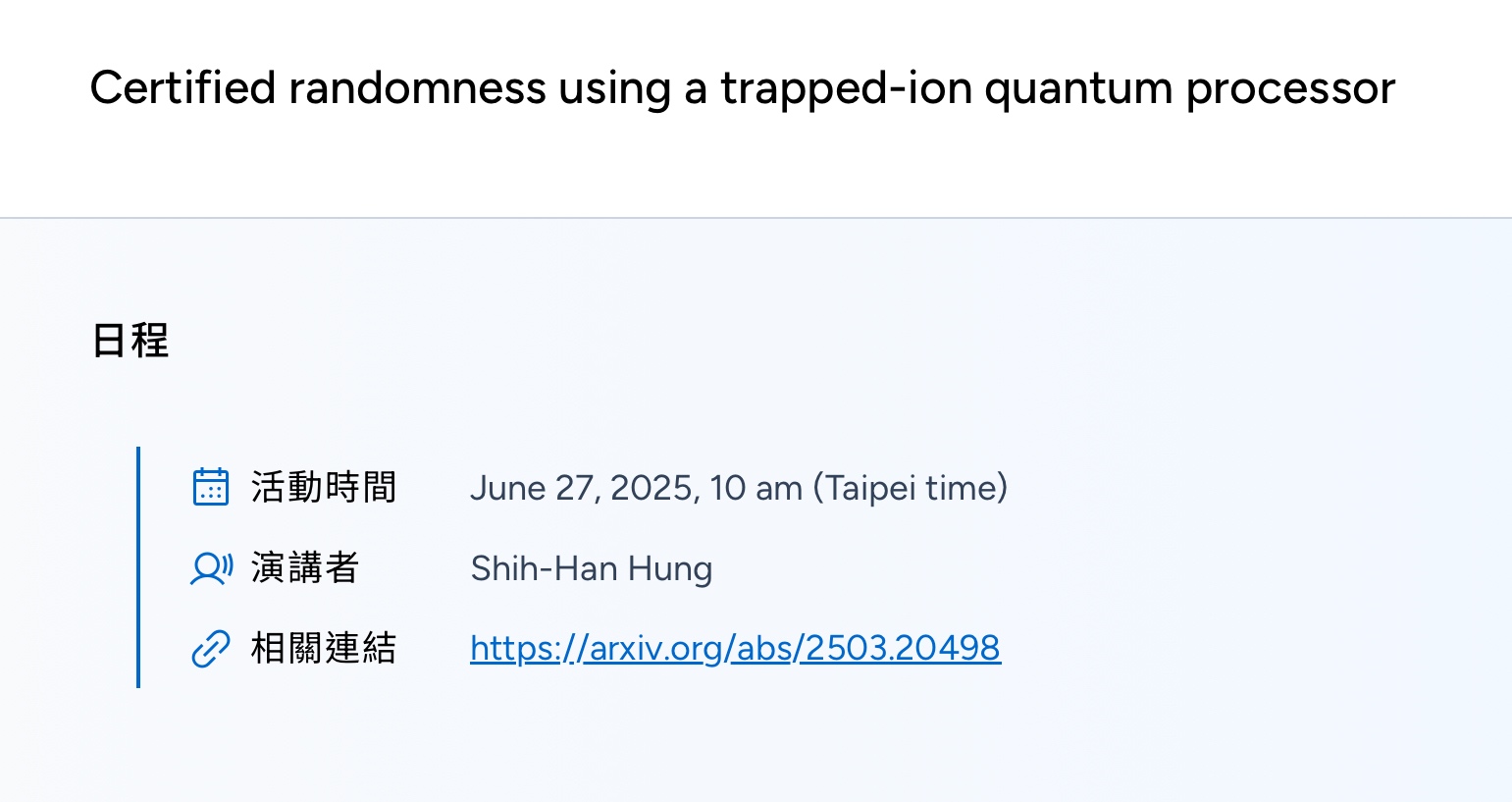
Certified randomness using a trapped-ion quantum processor
Schedule
Date
June 27, 2025, 10 am (Taipei time)
Speaker
Shih-Han Hung
Reference
Abstract
While quantum computers have the potential to perform a wide range of practically important tasks beyond the capabilities of classical computers, realizing this potential remains a challenge. One such task is to use an untrusted remote device to generate random bits that can be certified to contain a certain amount of entropy. Certified randomness has many applications but is fundamentally impossible to achieve solely by classical computation. In this work, we demonstrate the generation of certifiably random bits using the 56-qubit Quantinuum H2-1 trapped-ion quantum computer accessed over the internet. Our protocol leverages the classical hardness of recent random circuit sampling demonstrations: a client generates quantum "challenge" circuits using a small randomness seed, sends them to an untrusted quantum server to execute, and verifies the server's results. We analyze the security of our protocol against a restricted class of realistic near-term adversaries. Using classical verification with measured combined sustained performance of 1.1×1018 floating-point operations per second across multiple supercomputers, we certify 71,313 bits of entropy under this restricted adversary and additional assumptions. Our results demonstrate a step towards the practical applicability of today's quantum computers.
Personal information
Shih-Han Hung is an Assistant Professor at National Taiwan University. Previously he was a postdoc at the University of Texas at Austin. He earned his B.S. degree in Electrical Engineering at National Taiwan University and his Ph.D. in Computer Science at the University of Maryland. He is broadly interested in quantum information science, and has been working on various research problems in computational complexity theory, quantum cryptography, quantum algorithms, and quantum programming languages.
Post Date
June 20, 2025
Centers
Topic


